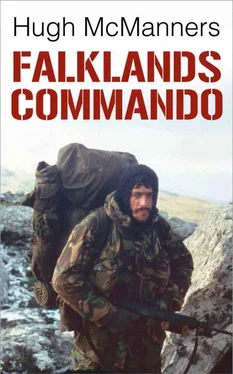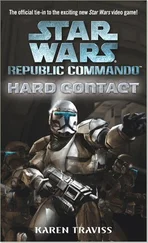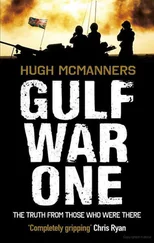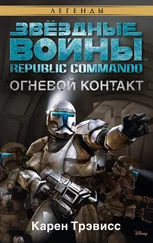Hugh McManners - Falklands Commando
Здесь есть возможность читать онлайн «Hugh McManners - Falklands Commando» весь текст электронной книги совершенно бесплатно (целиком полную версию без сокращений). В некоторых случаях можно слушать аудио, скачать через торрент в формате fb2 и присутствует краткое содержание. Город: London, Год выпуска: 2014, ISBN: 2014, Издательство: Nightstrike Publishing, Жанр: nonf_military, Биографии и Мемуары, на английском языке. Описание произведения, (предисловие) а так же отзывы посетителей доступны на портале библиотеки ЛибКат.
- Название:Falklands Commando
- Автор:
- Издательство:Nightstrike Publishing
- Жанр:
- Год:2014
- Город:London
- ISBN:978-0-992-81540-0
- Рейтинг книги:4 / 5. Голосов: 1
-
Избранное:Добавить в избранное
- Отзывы:
-
Ваша оценка:
- 80
- 1
- 2
- 3
- 4
- 5
Falklands Commando: краткое содержание, описание и аннотация
Предлагаем к чтению аннотацию, описание, краткое содержание или предисловие (зависит от того, что написал сам автор книги «Falklands Commando»). Если вы не нашли необходимую информацию о книге — напишите в комментариях, мы постараемся отыскать её.
Falklands Commando — читать онлайн бесплатно полную книгу (весь текст) целиком
Ниже представлен текст книги, разбитый по страницам. Система сохранения места последней прочитанной страницы, позволяет с удобством читать онлайн бесплатно книгу «Falklands Commando», без необходимости каждый раз заново искать на чём Вы остановились. Поставьте закладку, и сможете в любой момент перейти на страницу, на которой закончили чтение.
Интервал:
Закладка:
These aspects of war cannot be altered by technology – which is why, ultimately, it is the quality of soldiers that decides the outcome, rather than numbers or the sophistication of their equipment.
Eating, next to being dry and clean, and sleeping, was the most enjoyable and so personally important activity. Because eating is ‘normal’, for us there was an element of escapism in it.
On the ships you could get two hot meals on most days throughout the fighting. These meals, breakfast and dinner, were served during the hours of darkness when the air raids were not coming in, and were fairly normal, even though tinned or dehydrated. Because of the danger of fire from hot ovens and chip pans there was no cooking during the day, when we lived off ‘action snacks’, e.g. hamburgers, hot dogs, cheese rolls… washed down with countless cups of hot, sweet tea and coffee from urns that did the rounds every hour or so. This, however, was sheer luxury compared to what we ate out on operations.
The British Army 24-hour ration pack of the 1980s, known as a ‘rat’ pack, was coveted by our compatriots in foreign armies, who would happily swap the most delightful delicacies from their own rations for a packet of ‘Biscuits Sweet’ or a small tin of ‘Bacon Grill’. This astonished the British soldier, who avidly collects the strange things that other armies eat. After a while, however, one realized that their food was actually nothing like as good as ours. The Americans ate a strange mixture of cocktail snacks and kiddy food, the Danes changed their menus every few months, and the Dutch simply provided too much which you then had to carry.
In 1982, the Brit 24-hour ‘rat’ pack came in a plain, unmarked, brown cardboard box containing Breakfast and a Main Meal, plus several packets of bland, heavy, dry biscuits (Biscuits AB) and Garibaldi biscuits (Biscuits Sweet AB). Biscuits AB were very carefully formulated to contain oils, carbohydrates and much other vital nourishment. They also clogged up your lower intestine. There were several brew kits providing tea, coffee, powdered milk and sugar enough for a couple of pints of ‘wets’. These were shared around several people, sharing the same mug. There was a ‘sundries’ pack containing a generous supply of hard lavatory paper, chewing gum (as an aid to tooth cleaning), salt sachets, a small tin opener, a book of matches and a list of the menus provided by the four types of pack.
Each brown box was labelled Menu A, B, C or D. We knew exactly what each menu contained, and which we preferred to reject, swap or dump. Breakfast consisted of Biscuits AB, a tin of Bacon Grill or Bacon Burger, tins of Baked Beans or Spaghetti and a block of Compressed Oatmeal. The main meals ranged from miniature steak and kidney puddings (nicknamed ‘Babies Heads’) to stewed steak, minced beef and chicken curry. The tins were half the size of the normal ones you buy in the shops. Dehydrated apple flakes or apricot flakes were included in the main meal, and a tin of fruit pudding (a heavy plum duff) or the universal favourite, fruit salad.
Fruit salads were the ultimate treat which people would hoard until they needed cheering up. I very often returned from ops with several fruit salads because I hadn’t been able to decide when to eat them. Des Nixon had a similar problem but he, with the inescapable logic of a Yorkshireman, overcame it by eating all his at once at the very beginning, which was far more sensible than my strategy. I heard of one person who ate all his fruit salads before even leaving the ship.
It’s possible to create ‘interesting’ dishes from a 24hr ‘rat’ pack, although when once I tried this at home in a proper kitchen, the results were bland and not very nice. But out in the field, fresh air and hunger make ‘compo’ rations seem much nicer than they actually are. In more leisurely times, on long training exercises, I’ve created such delights as apple crumble, and curries using spices, garlic and fresh onions, but in the Falklands we stuck to the classic British Army ‘all-in’ stew if we were in a position to heat our food. Otherwise we ate it cold.
Cooking is done in small cooking pots or issue mess tins, and everyone has their own methods, utensils and preferences. I liked to cook mine in a circular aluminium dixie with a lid, using a shortened wooden spoon. The wooden spoon is an essential bit of kit as far as I’m concerned, a cooking and eating implement combined, can scrape burnt stew from the bottom of the dixie without added aluminium, but most importantly doesn’t get hot and burn your fingers or lips (which may also be chapped or wind-burned). I used the same dixie for making brews, which cleans it, saving water. Again to avoid burning sensitive lips, I drank from a pint-size, dark-green plastic mug. This mug suffered a melt-down during the last fortnight of the fighting by being left too close to a hexamine cooker. But thankfully I was able to re-melt it with my heated-up knife, then smooth hot plastic over the hole. It’s not easy to obtain green plastic mugs in the South Atlantic.
On exercises, most of us used ‘bluey’ propane gas cookers for their speed of cooking and lightness. But in the cold and high winds of the Falklands, they were simply not hot enough. The issue hexamine tablets (like firelighter blocks) with a metal cooker frame, issued one per ration pack, are very hot, and with appropriate shelter from the wind, worked very well. The main problem was getting the ‘hexxy’ blocks alight in howling winds. The ‘Rolls Royce’ of cookers was a Coleman’s petrol stove, but you had to scavenge round the ship for suitable fuel. Avgas as used by helicopters was a dodgy alternative.
The best ‘rats’ of all are the ones designed for the arctic, which provide 5000 calories per day if you eat everything, with very adaptable but mainly dehydrated menus. Everyone’s favourite, apart from the fruit salad, was arctic ration hot chocolate – a meal in itself.
The main problem with dehydrated rations is that you rarely have time to soak them for long enough – assuming you have enough water. Improperly soaked, arctic rations were crunchy, which was fine, but then soaked up water from your stomach to make you dehydrated, plus even more constipated than the usual clogging-up effect of compo. Even in the excessively wet conditions of the Falklands, there was often a shortage of pure enough water that was safe to consume. Quite often, as we couldn’t roam around looking for streams, finding even a muddy pool in which carefully to immerse your water bottle was a problem. Chlorine water purifying tablets were always used, making everything taste like swimming pool water.
The cold, wet, windy conditions made dehydration a particular problem. Wind evaporates moisture from the skin very quickly, especially when moving and perspiring heavily. This causes rapid dehydration, making you vulnerable to exposure.
Whenever we could, we cooked just before last light and drank lots of wets to keep body fluids up. But drinking lots after a meal, then trying to sleep creates problems of its own. Getting up in the night for a pee is a serious business when you have to crawl over the top of your ‘oppo’ underneath a two-foot high poncho that’s stretched tight with accumulated rainwater, and a camouflage net piled with turfs and grass. You then have to negotiate a muddy tunnel to the outside world. Many of us used the ‘pee bottle in the sleeping bag’ technique, which doubles up as a very welcome hot water bottle. The bottle had to be very large, to minimise the risk of miscalculation and disastrous overflow.
The long days spent lying-up waiting for nightfall, or in concealed observation posts on mountaintops, were bone-numbingly cold. We could not move at all, and certainly not in order to generate body heat. We’d wear all our clothes plus arctic quilted ‘Chairman Mao’ outer suits, then if the security situation allowed it, crawl inside our ‘green slugs’ and huddle together for warmth. Eating a chocolate bar seemed to release an almost instant glow of energy and perceptible warmth, and the value of a hot, very sweet cup of tea was unfathomable. We tended to keep bars of chocolate for after dark when we dared not light the cookers.
Читать дальшеИнтервал:
Закладка:
Похожие книги на «Falklands Commando»
Представляем Вашему вниманию похожие книги на «Falklands Commando» списком для выбора. Мы отобрали схожую по названию и смыслу литературу в надежде предоставить читателям больше вариантов отыскать новые, интересные, ещё непрочитанные произведения.
Обсуждение, отзывы о книге «Falklands Commando» и просто собственные мнения читателей. Оставьте ваши комментарии, напишите, что Вы думаете о произведении, его смысле или главных героях. Укажите что конкретно понравилось, а что нет, и почему Вы так считаете.












